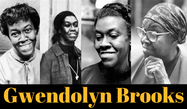
Brooks is recognized as “one of the most highly regarded, highly influential” poets of the 20th-century.
EARLY LIFE
Gwendolyn Brooks was born in Topeka, Kansas in 1917. Her father was a janitor for a music company, but had hoped to pursue a career as a doctor. Her mother was a school teacher as well as a concert pianist trained in classical music. When Brooks was still a baby, her parents moved to Chicago, where she lived the rest of her life.
Brooks wrote from an early age and, encouraged by her mother, she began submitting poems to publications as a teen. At thirteen, her first published poem entitled “Eventide” appeared in American Childhood magazine. Over the next four years she wrote and published seventy-five poems.
▼Photo source: poeticous.com/gwendolyn-brooks
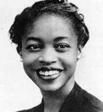
"I am not a scholar," she later said. "I'm just a writer who loves to write and will always write."
Brooks did attend Wilson Junior College for a two-year program and found work as a typist to support herself while she pursued her writing. She did admit that she would have written differently had she remained in Kansas. While attending meetings of the Chicago’s NAACP, Brooks met Henry Lowington Blakely, Jr. They married in 1939, and subsequently had two children.
PROFESSIONAL CAREER
Pursing her writing career, Brooks attended poetry and writing workshops, one of which was visited by poet Langston Hughes who heard her read her work. In 1944 two of her poems were published in Poetry magazine. She was a hit, and a year later her first book of poetry, A street in Bronzeville, was published by Harper & Brothers.
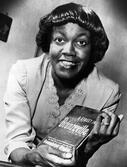
Photo source: pulitzer.org/article/brooks During her lifetime, Brooks wrote a large body of work, but she was also acclaimed as a teacher. Author Frank London Brown asked her to teach a course in American literature at the University of Chicago. This was her first teaching experience and the beginning of an extensive, lifelong commitment to sharing poetry and teaching writing.
HONORS
- 1946, Guggenheim Fellow in Poetry.
- 1950, Pulitzer Prize in Poetry
- 1968, appointed Poet Laureate of Illinois, a position she held until her death in 2000
- 1969, Anisfield-Wolf Book Award
- 1976, inducted into the American Academy of Arts and Letters
- 1976, the Shelley Memorial Award of the Poetry Society of America
- 1985, selected as the Consultant in Poetry to the Library of Congress, an honorary one-year term, known as the Poet Laureate of the United States
- 1988, inducted into the National Women's Hall of Fame
- 1989, awarded the Robert Frost Medal for lifetime achievement by the Poetry Society of America
- 1994, chosen to present the National Endowment for the Humanities' Jefferson Lecture.
- 1994, received the National Book Foundation's Medal for Distinguished Contribution to American Letters
- 1995, presented with the National Medal of Arts
- 1997, awarded the Order of Lincoln, the highest honor granted by the State of Illinois.
- 1999, awarded the Academy of American Poets Fellowship for distinguished poetic achievement.
FROST, WILLIAMS OUT; BROOKS, IN: THE PULITZER PRIZE STORY
According to pulitzer.org/article/frost-williams-no, the story behind the story of the 1950 Pulitzer Prize in Poetry is worth commenting on.
The judges for 1950 Advisory Committee were Alfred Kreymborg [a poet, anthologist and chess master who had long been a figure in the New York literary scene], Louis Untermeyer, and Henry Seidel Canby [a noted English professor at Yale]. All had served on the jury previously.
“The jury that year faced some challenges. William Carlos Williams, long a friend and colleague of Kreymborg’s, had published both a Selected Poems and the first parts of Paterson in 1949. He was in his mid-60s and had never won a Pulitzer Prize. Robert Frost’s Complete Poems came out that year as well. He was 75 and had won the prize four times. His friend, Louis Untermeyer, was on the jury with Kreymborg.” https://www.pulitzer.org/article/frost-williams-no-gwendolyn-brooks
bolsteredbythoughts.weebly.com/ jnjreid.com/canby dcwritershomes.wdchumanities.org
The jury of three had eleven books to review. Ultimately, they decided that although the best book of the year was Robert Frost’s Complete Poems, Frost had received the award four times for all but a few of the same poems. A fifth prize would be redundant and unfair.
William Carlos Williams had been growing in stature but was still “…frequently distinguished by an extreme of obscurity.” Later in 1950, Williams was due to publish a volume of poetry which the judges believed would be more representative of his talent, and felt that the next year would give the jury better material for form a judgment. The only other book worthy of consideration was Annie Allen by Gwendolyn Brooks. After explaining the above in a letter to Dean Carl W. Ackerman, Graduate School of Journalism Columbia University, Henry S. Canby wrote:
“Fortunately, among the other books of poems submitted for an award is a volume of great originality, real distinction and high value as a book, as well as poetry. Some years ago, Gwendolyn Brooks, a Negro writer of unusual ability, published A Street in Bronzeville, which made a great impression on all its readers and had what is unusual for poetry today — a wide sale. In 1949 she published Annie Allen, a much better book, and indeed, in our opinion, the outstanding volume of the year, if you exclude Robert Frost. No other Negro poet has written such poetry of her own race, of her own experiences, subjective and objective, and with no grievance or racial criticism as the purpose of her poetry. It is highly skillful and strong poetry, out of the heart, but rich with racial experience. I quote from Mr. Alfred Kreymborg, with whose opinion I entirely agree.
I may say that we have seldom been more satisfied than with our choice of Annie Allen.
Yours very truly,
Henry S. Canby”
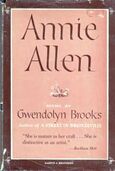
Orpheus, Muriel Rukeyser
Elegies, Muriel Rukeyser
An Acre in the Seed (posthumous), Theodore Spencer
Live Another Day, John Ciardi
Aspects of Proteus, Hyam Plutzik
Volume II, Jose Garcia Villa
Walk Through Two Landscapes, Dilys Bennett Laing
The Tears of the Blind Lions, Thomas Merton
The Pulizer Prize kicked off Brooks prolific career with a bang.
Sources:
https://www.poetryfoundation.org/poets/gwendolyn-brooks
https://en.wikipedia.org/wiki/Gwendolyn_Brooks
http://www.english.illinois.edu/maps/poets/a_f/brooks/life.htm
https://www.pulitzer.org/article/frost-williams-no-gwendolyn-brooks
https://en.wikipedia.org/wiki/Gwendolyn_Brooks#Career
https://poetryteatime.com/blog/learn-about-gwendolyn-brooks
https://blackbooksmatter.com/celebrating-gwendolyn-brooks/
https://www.poeticous.com/gwendolyn-brooks
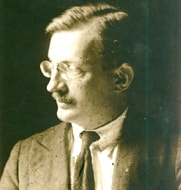
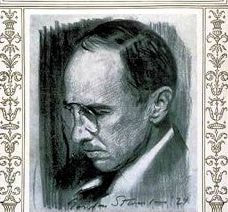
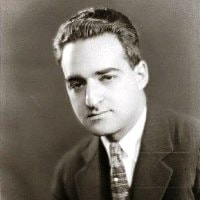
 RSS Feed
RSS Feed